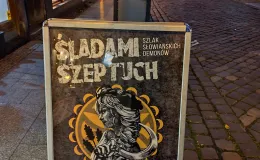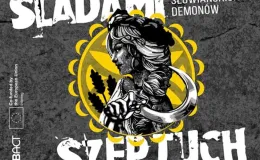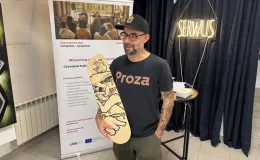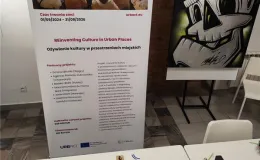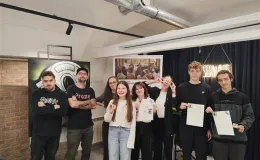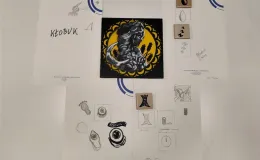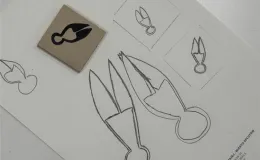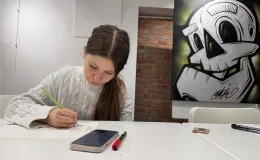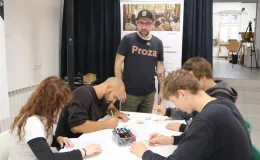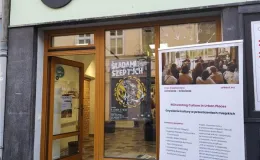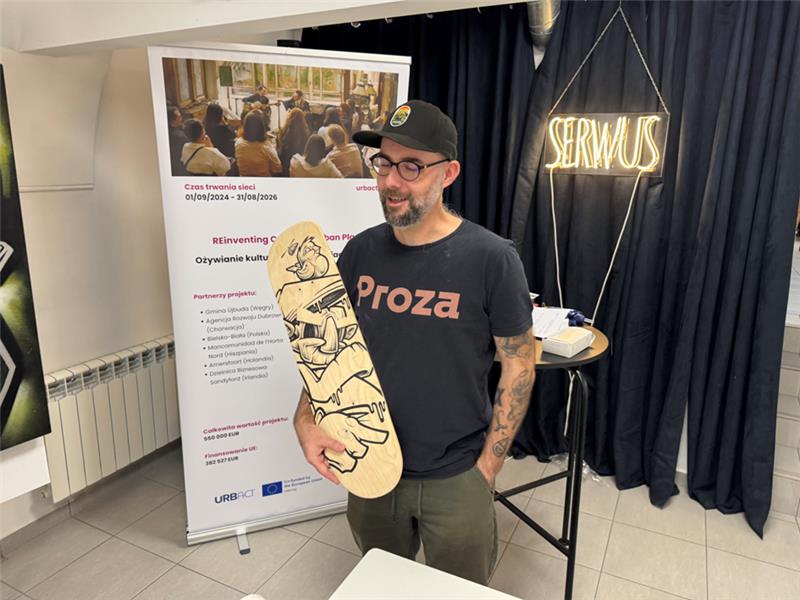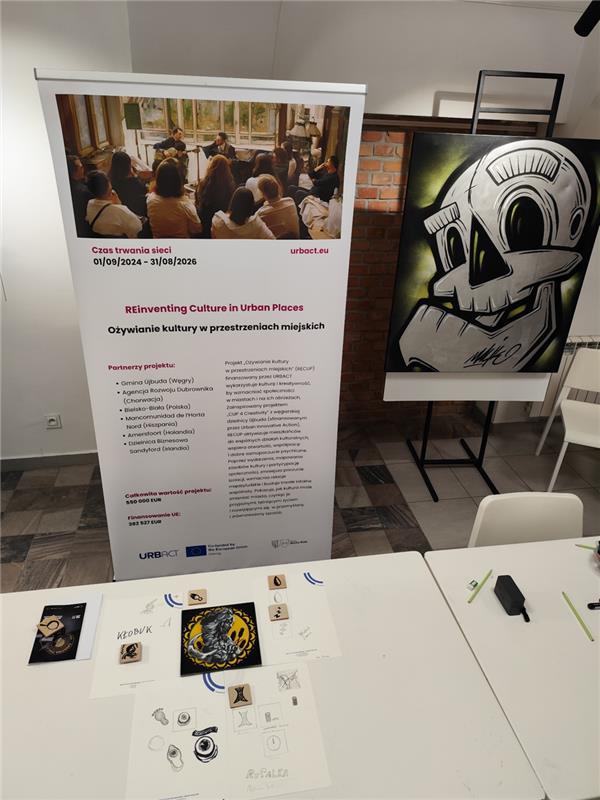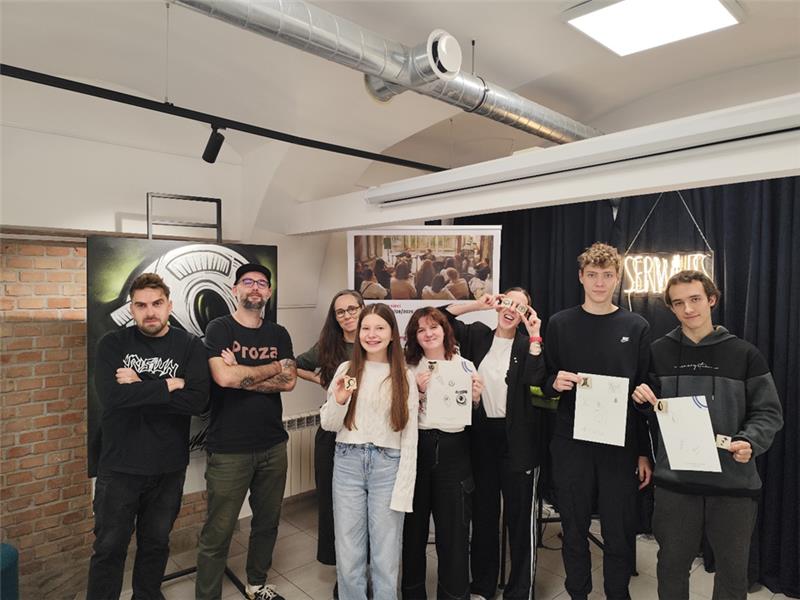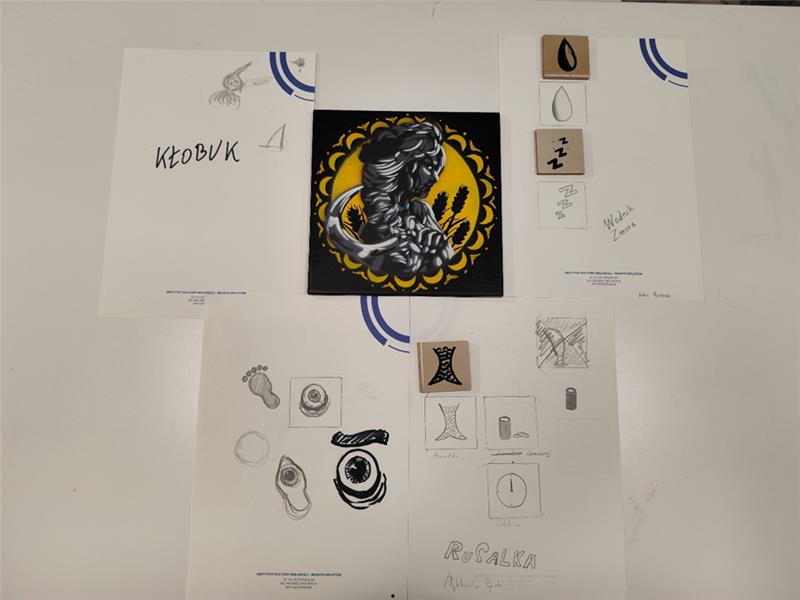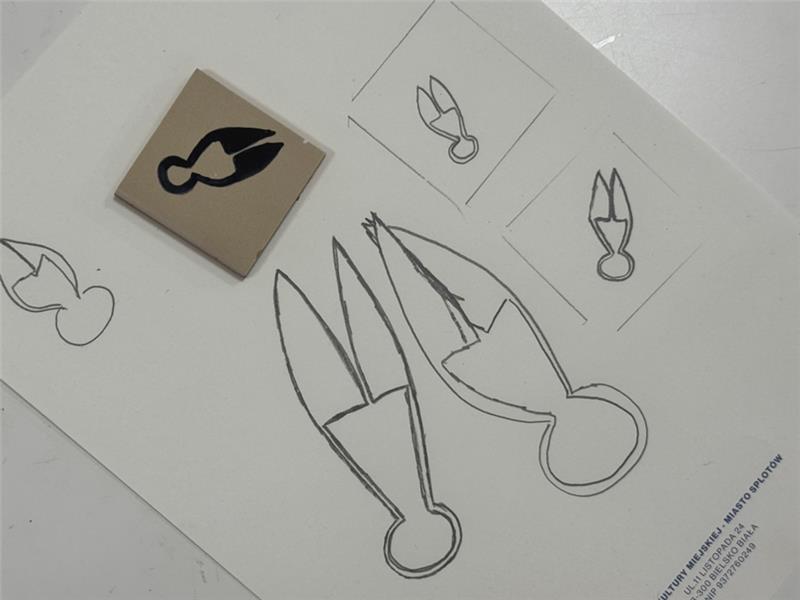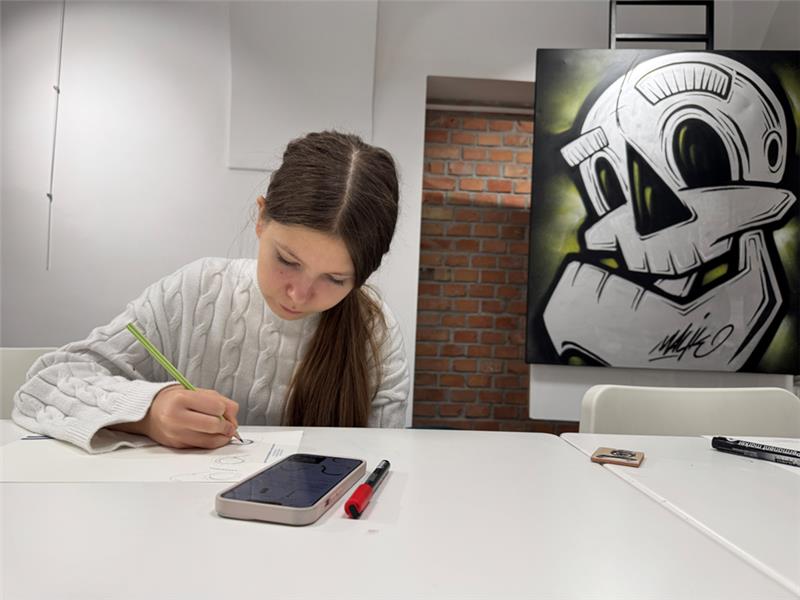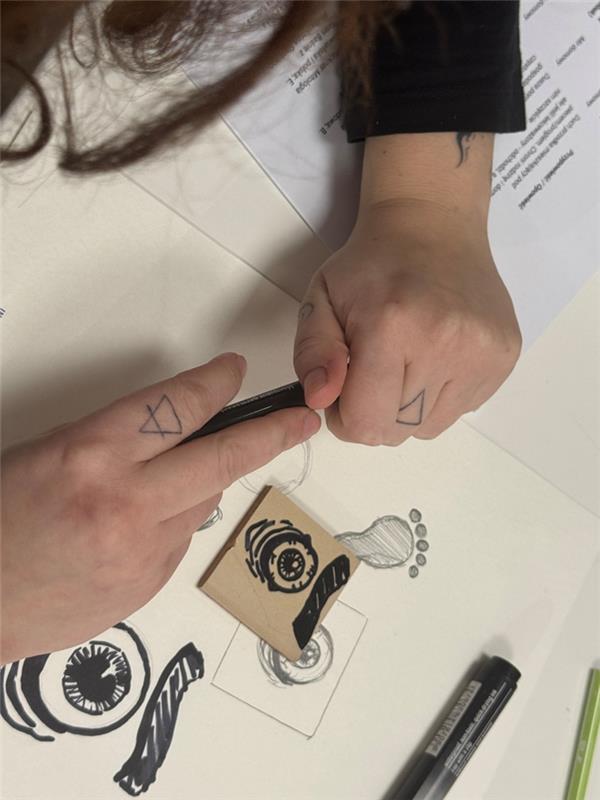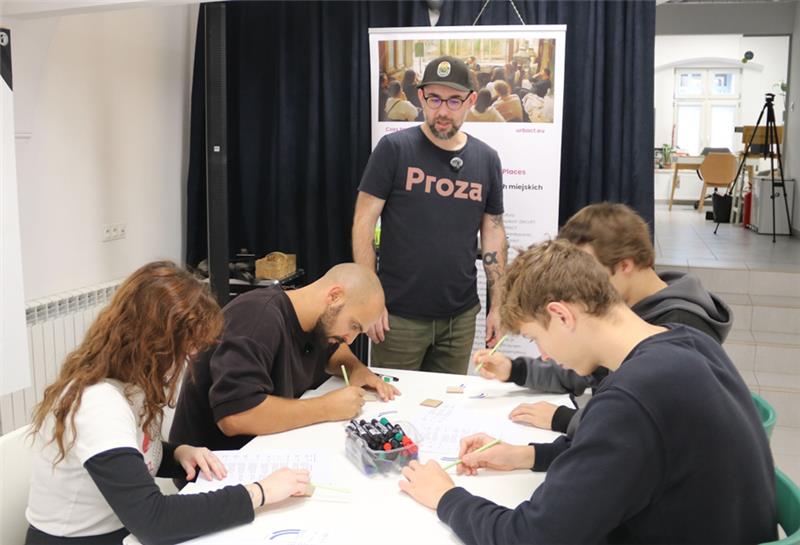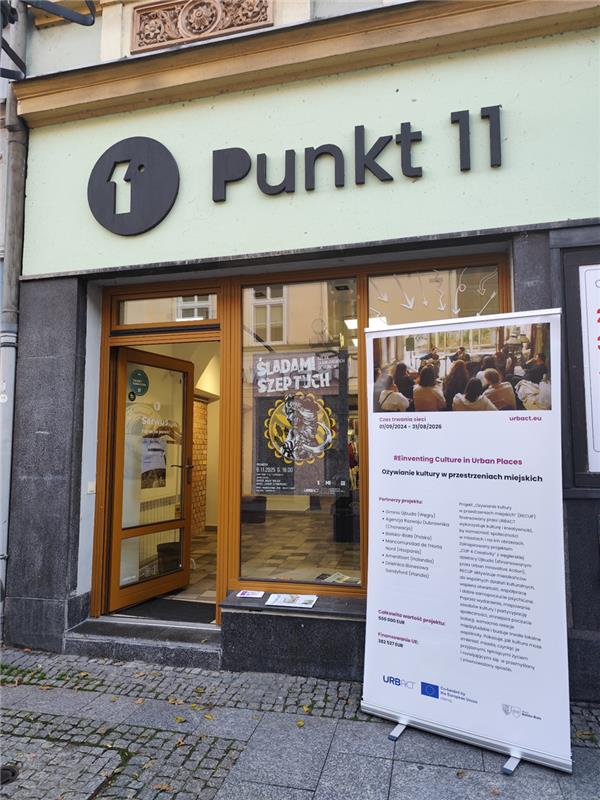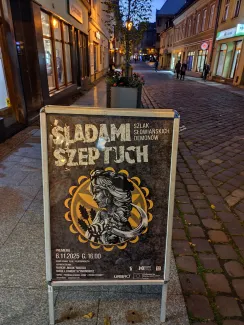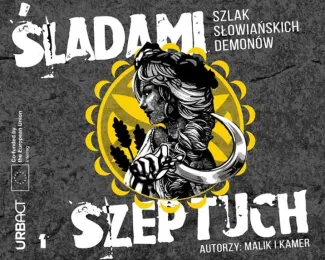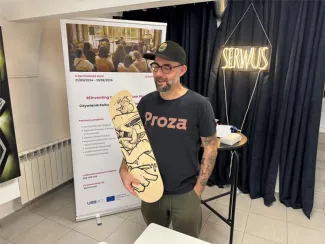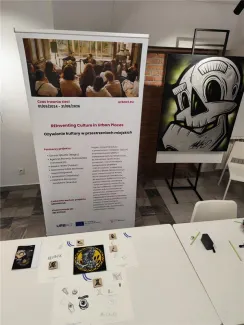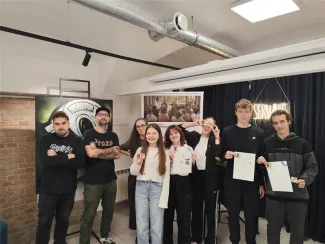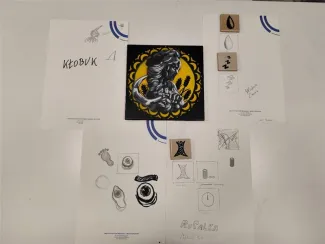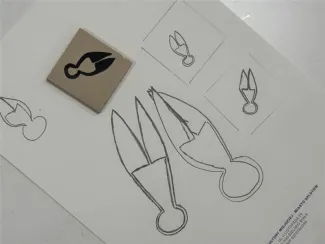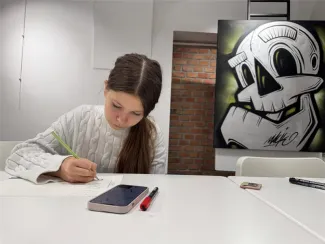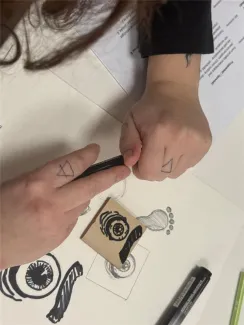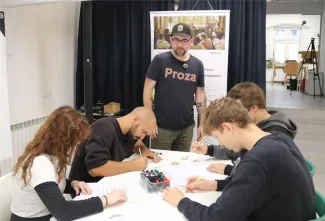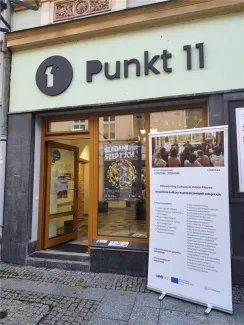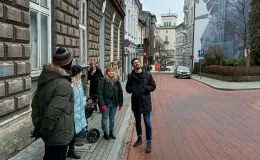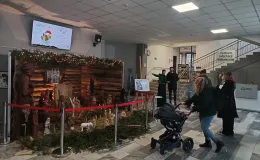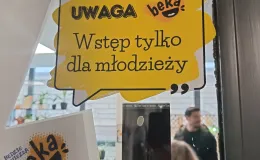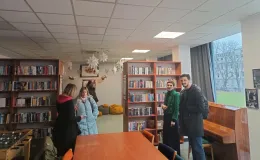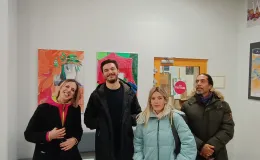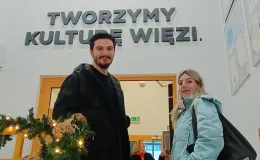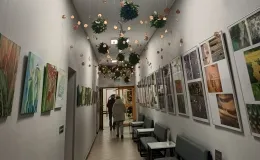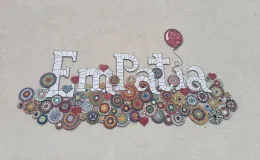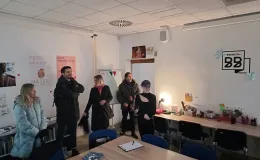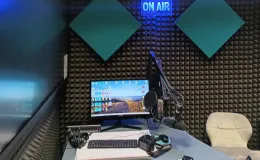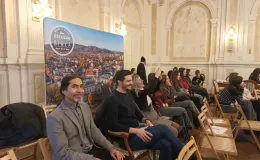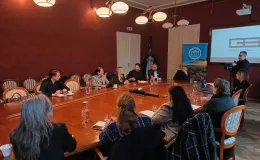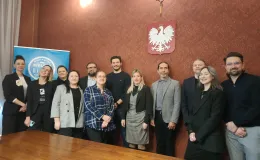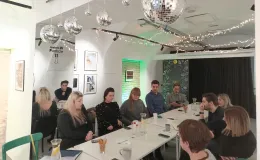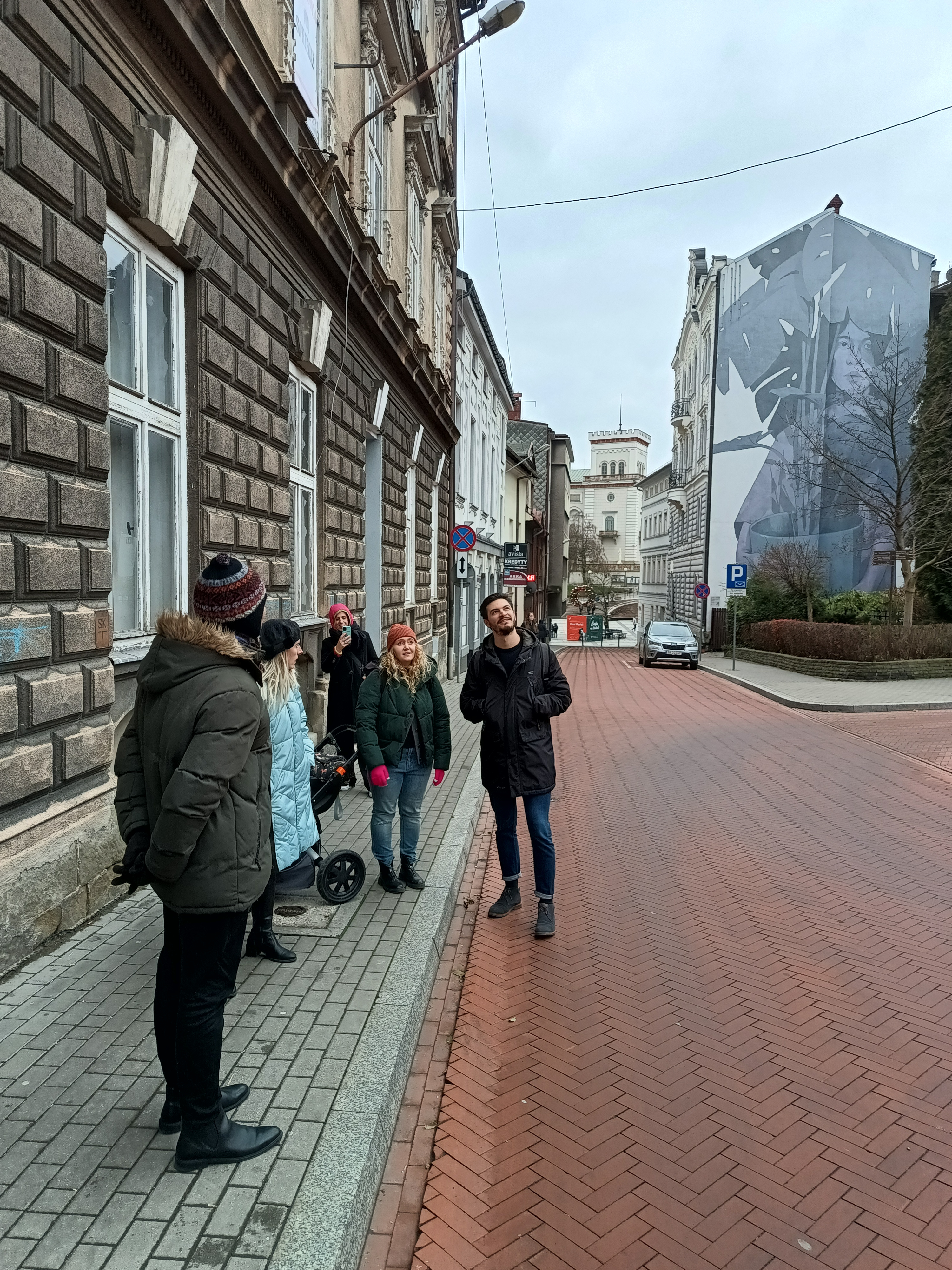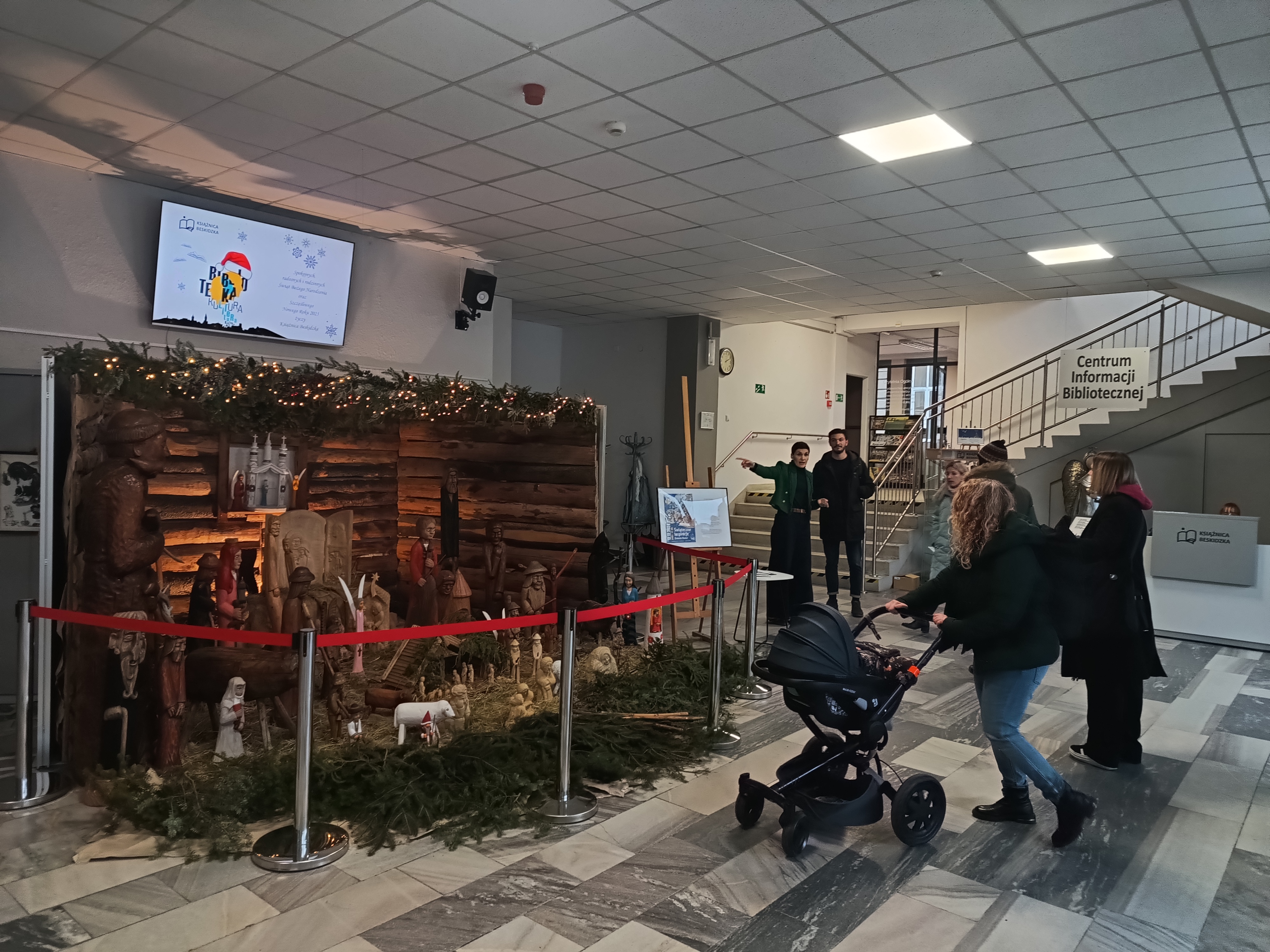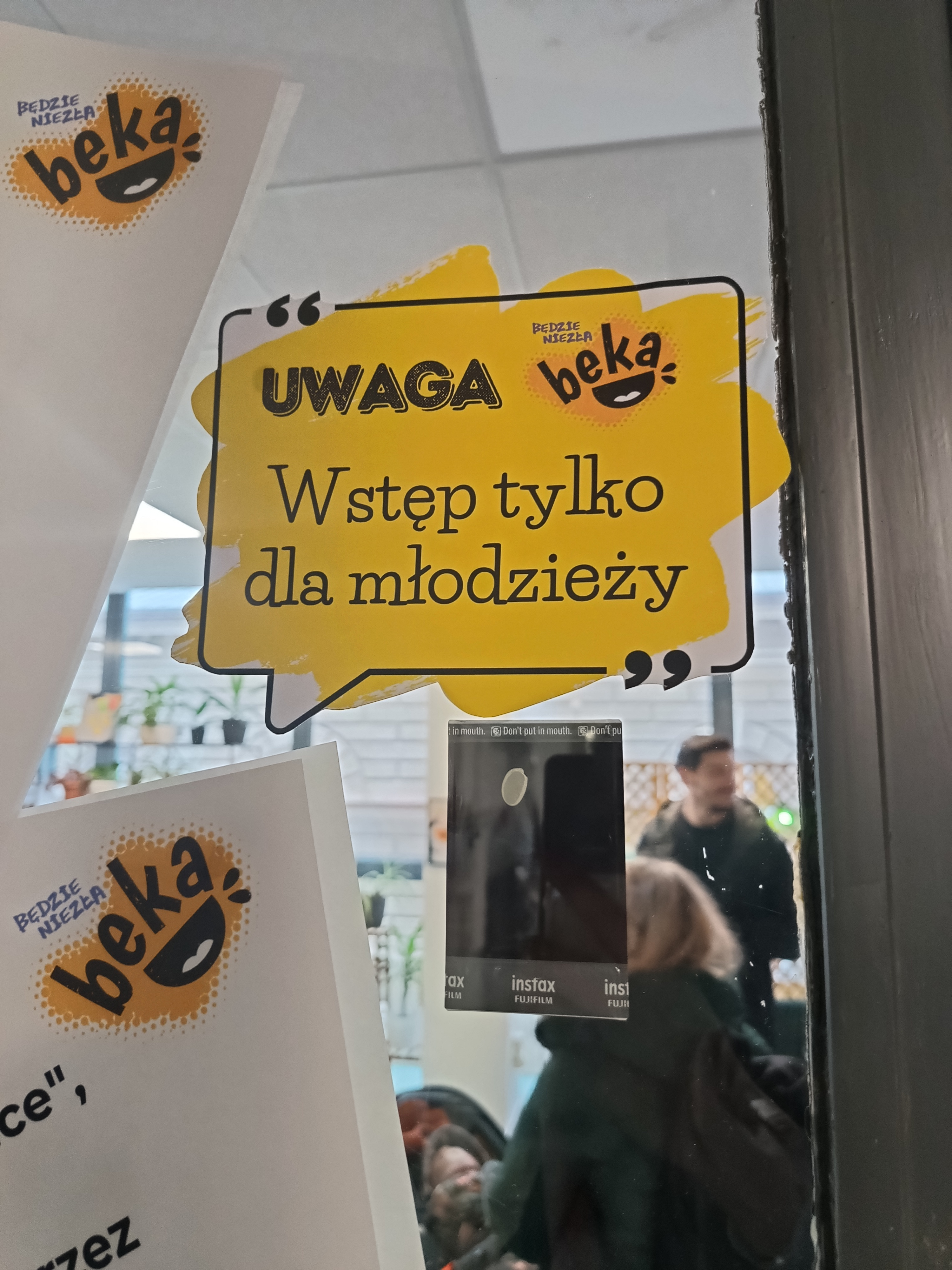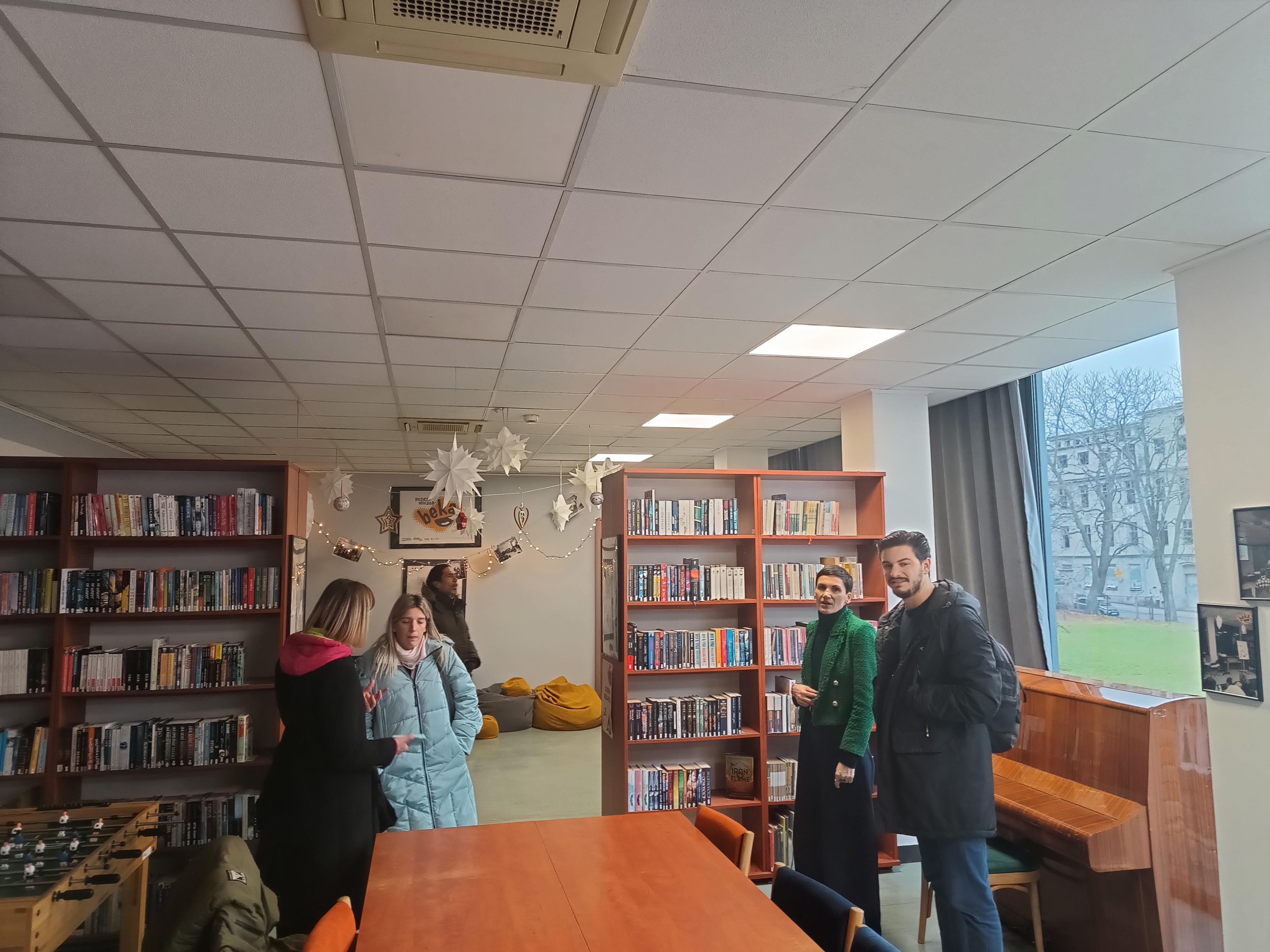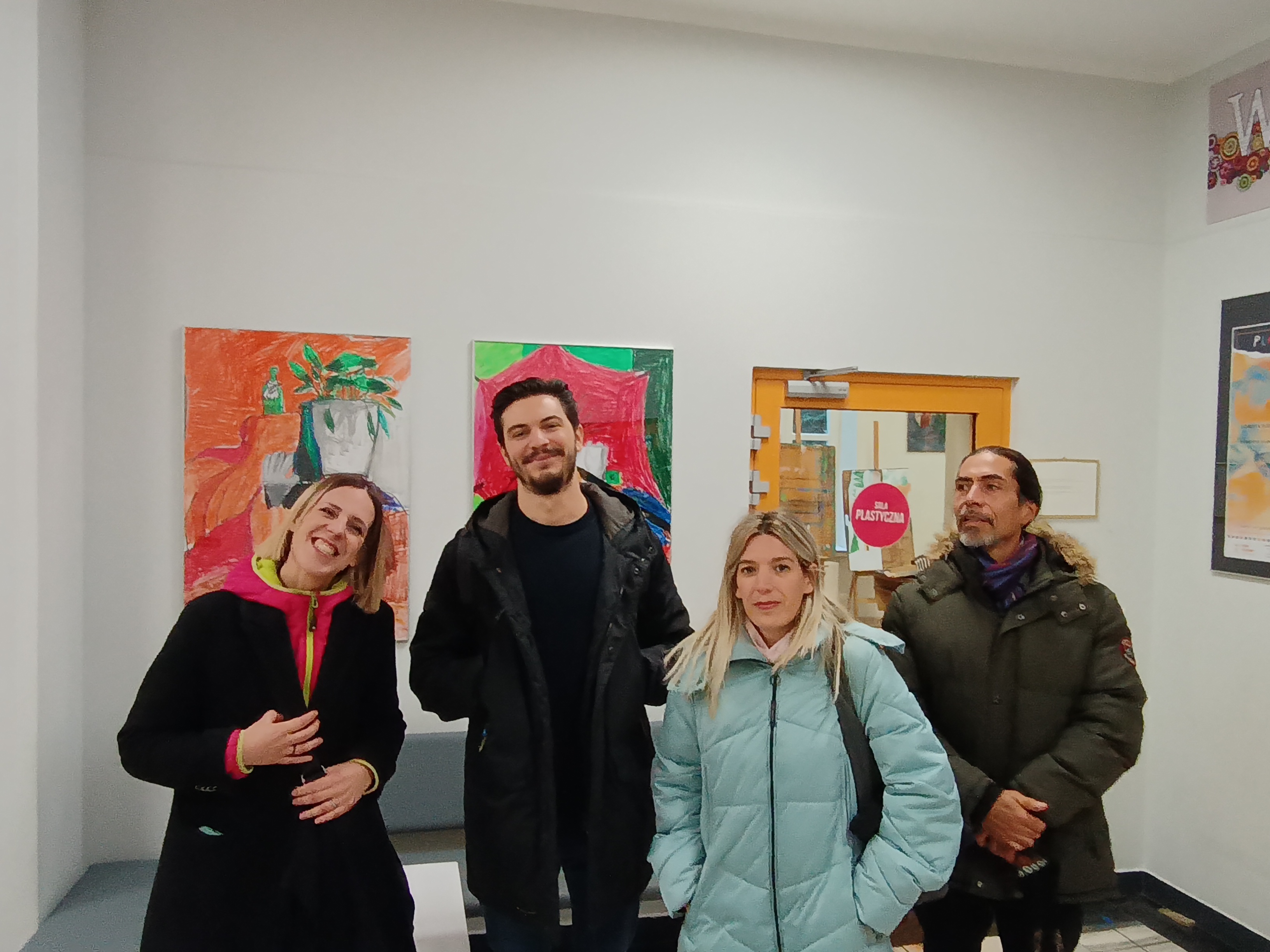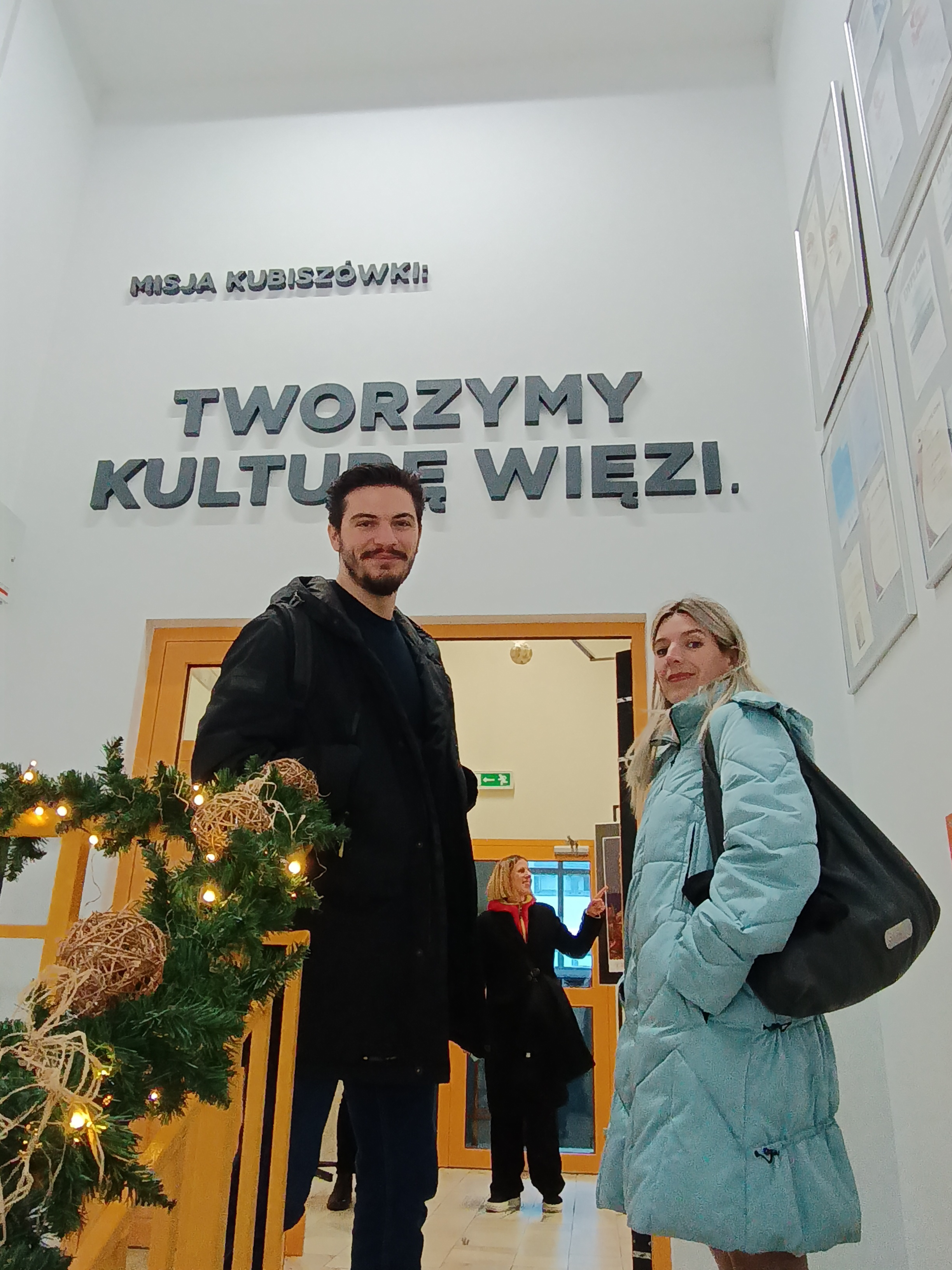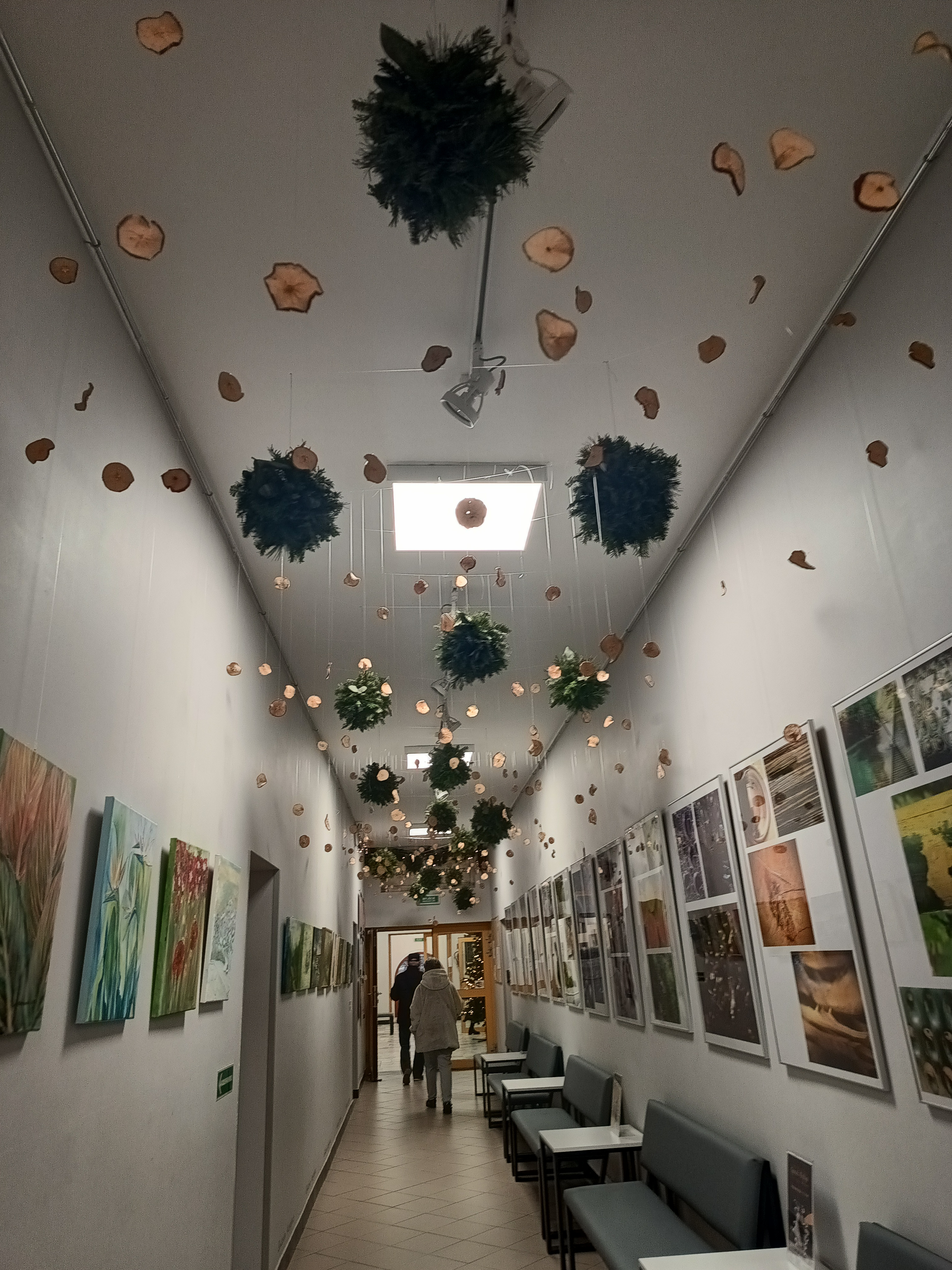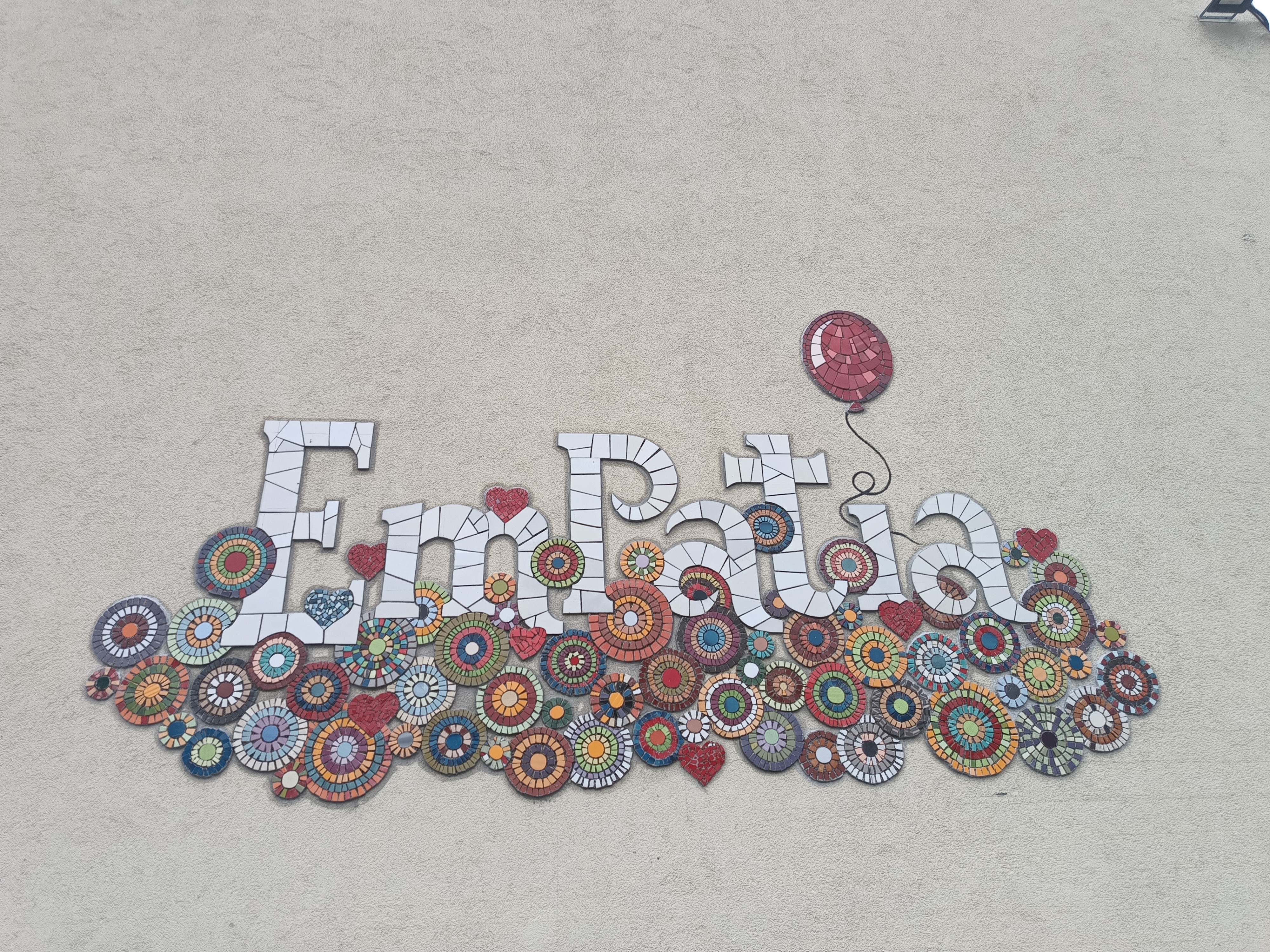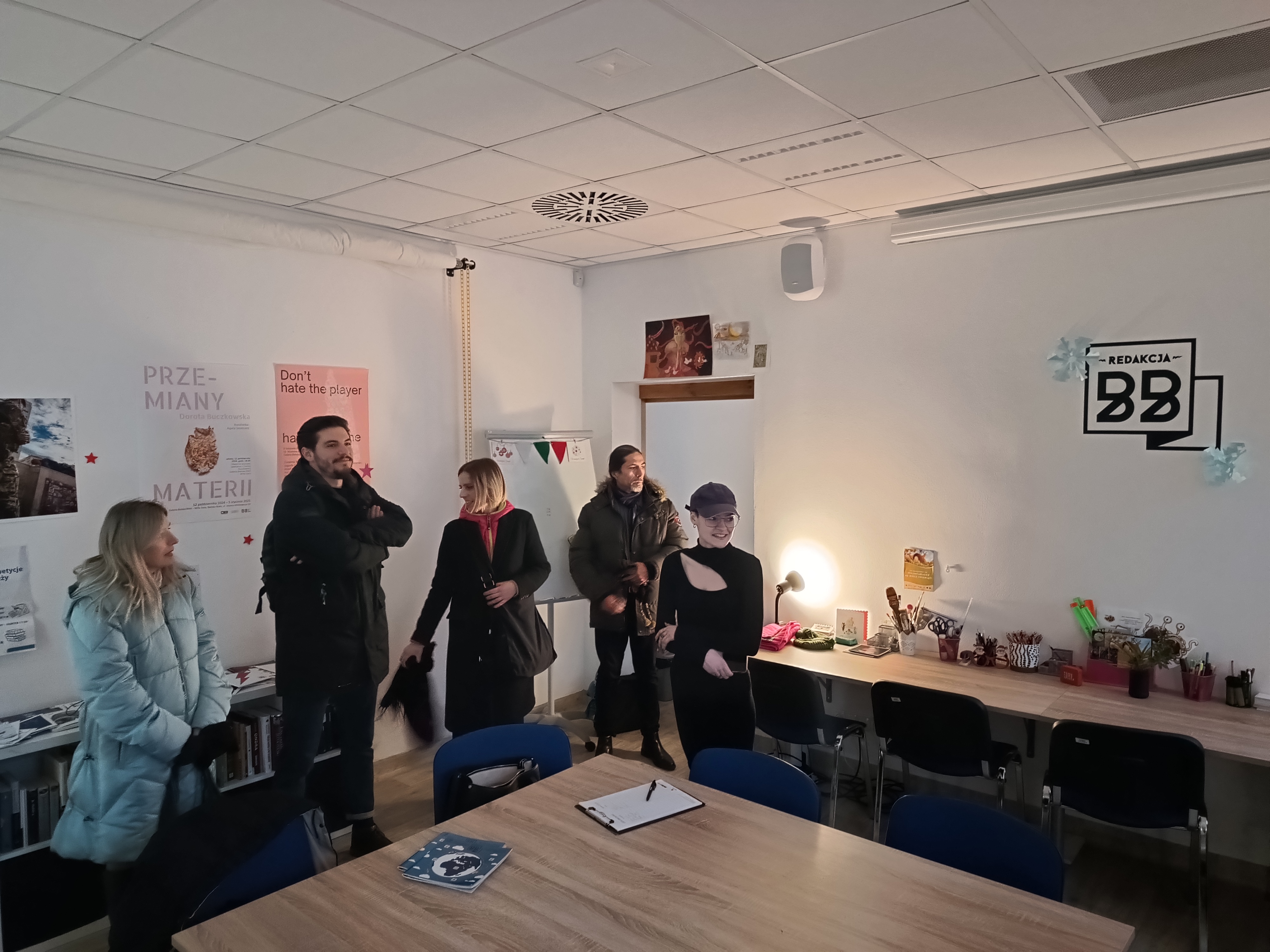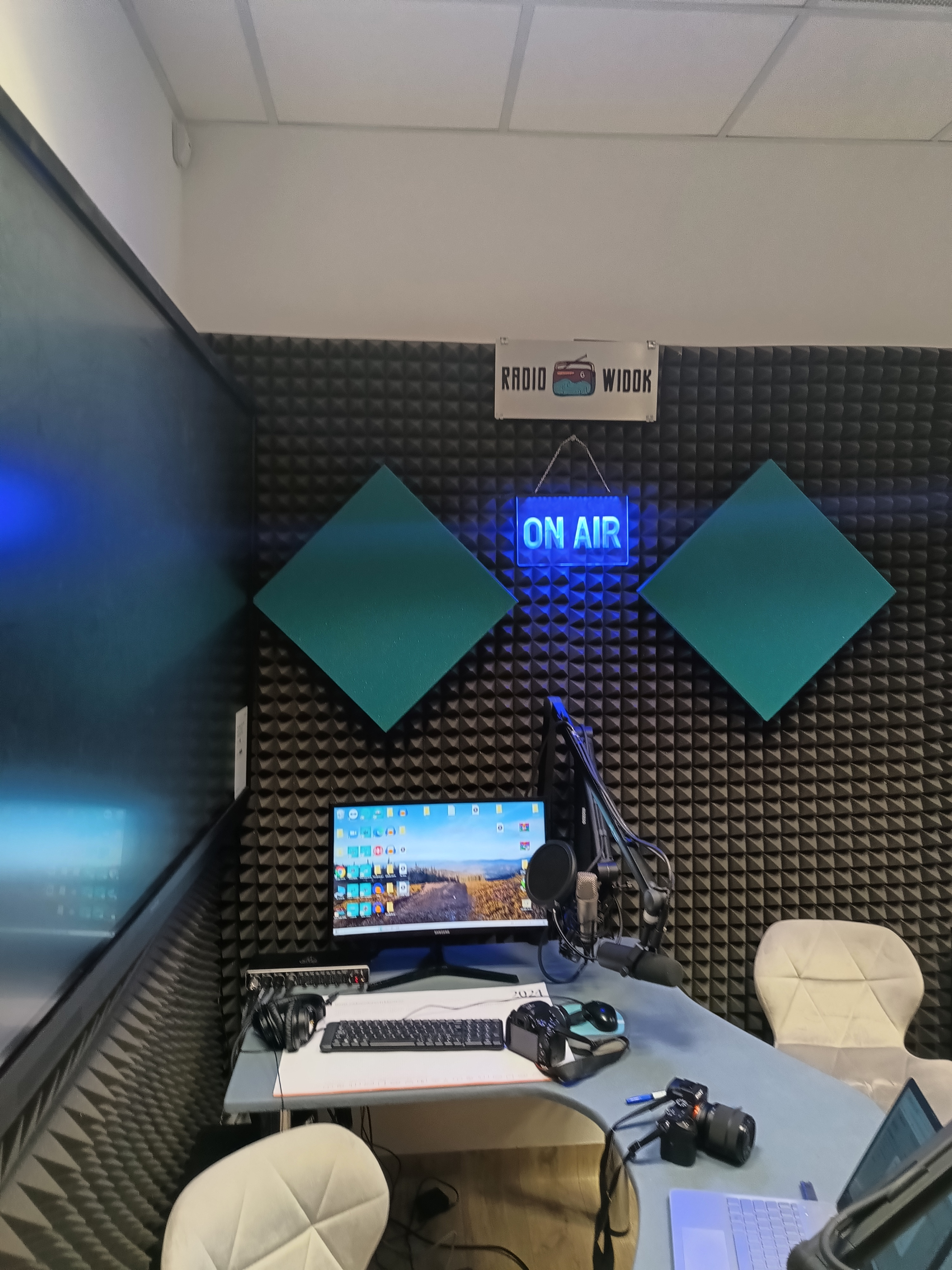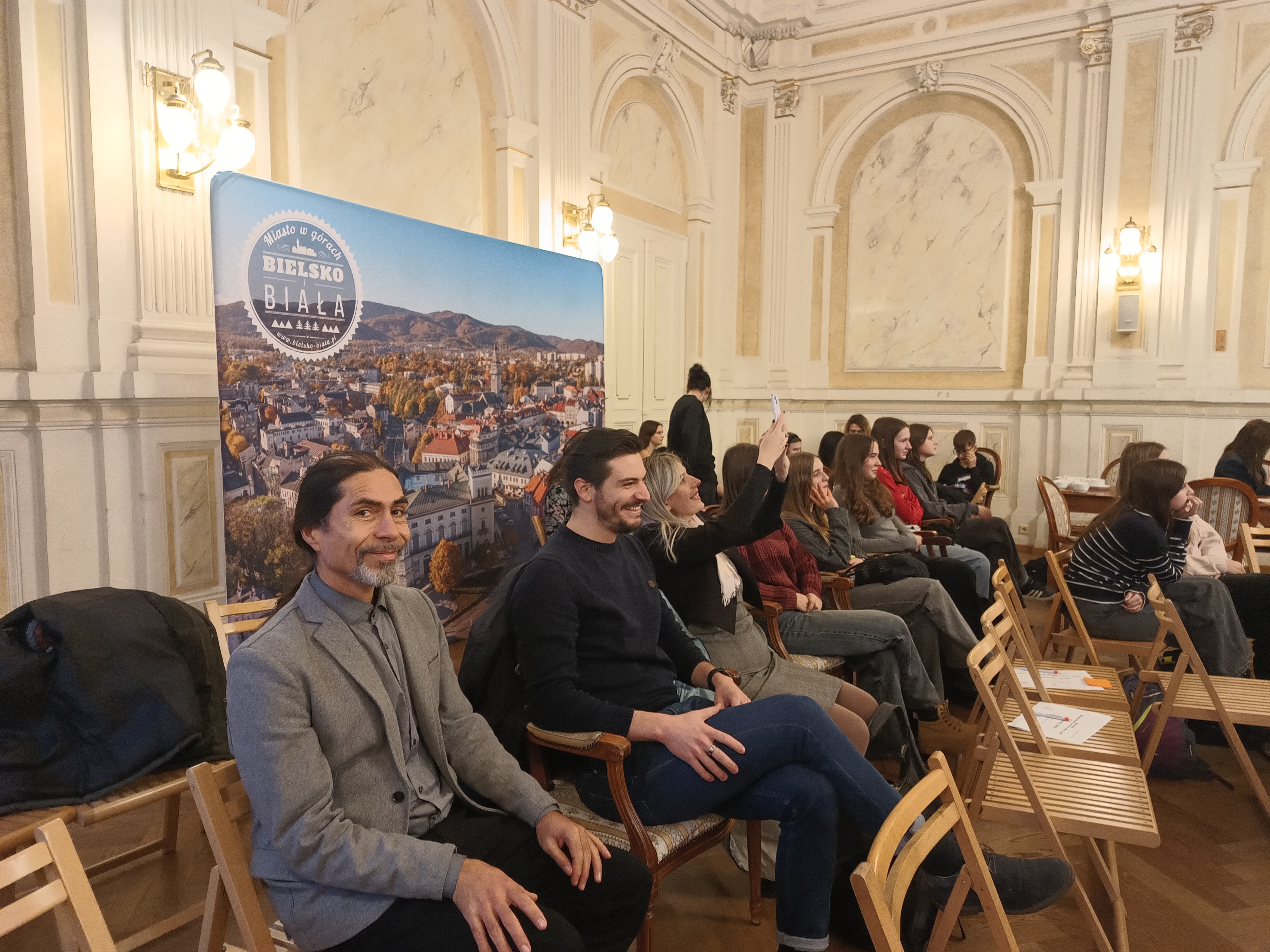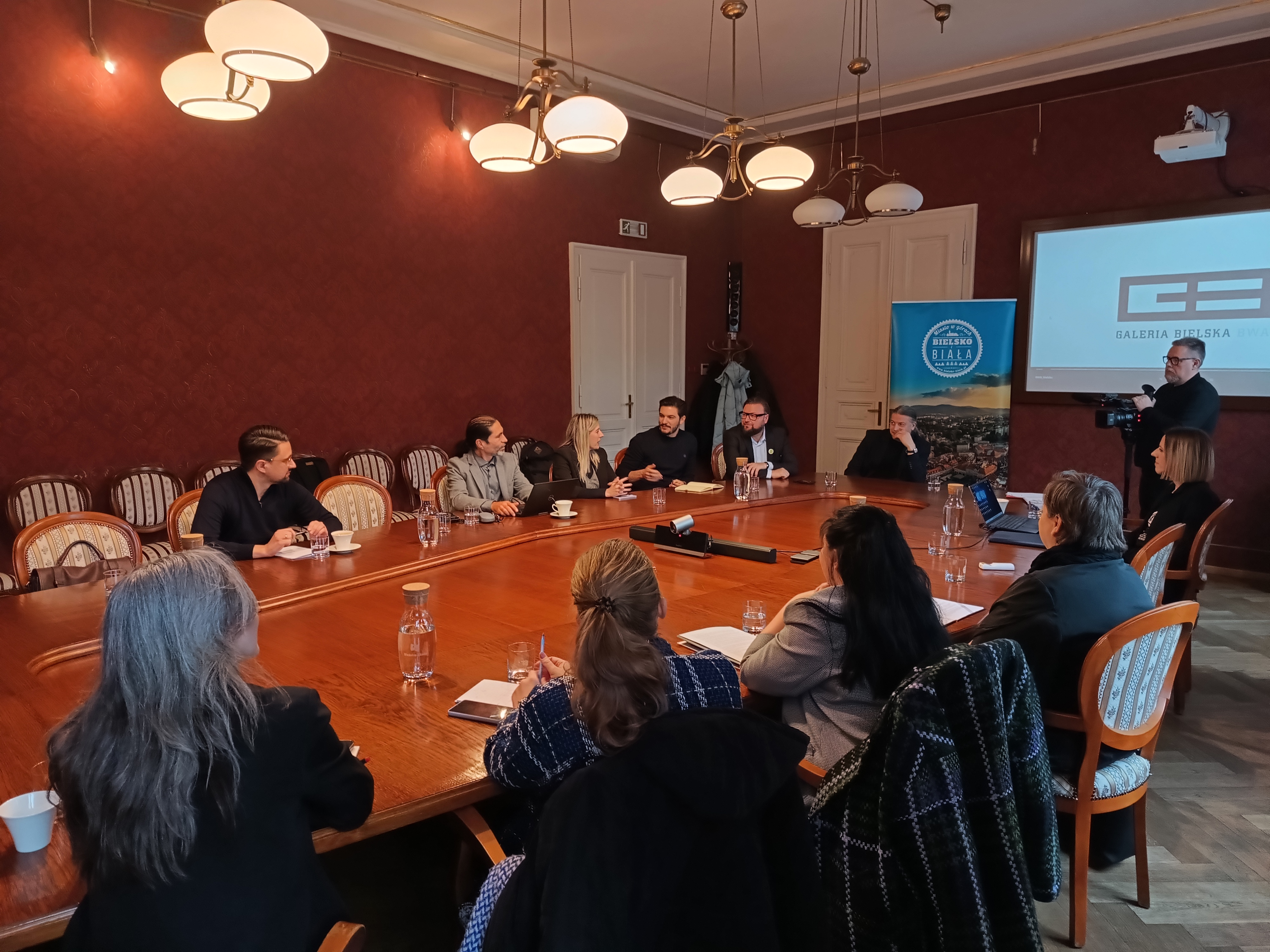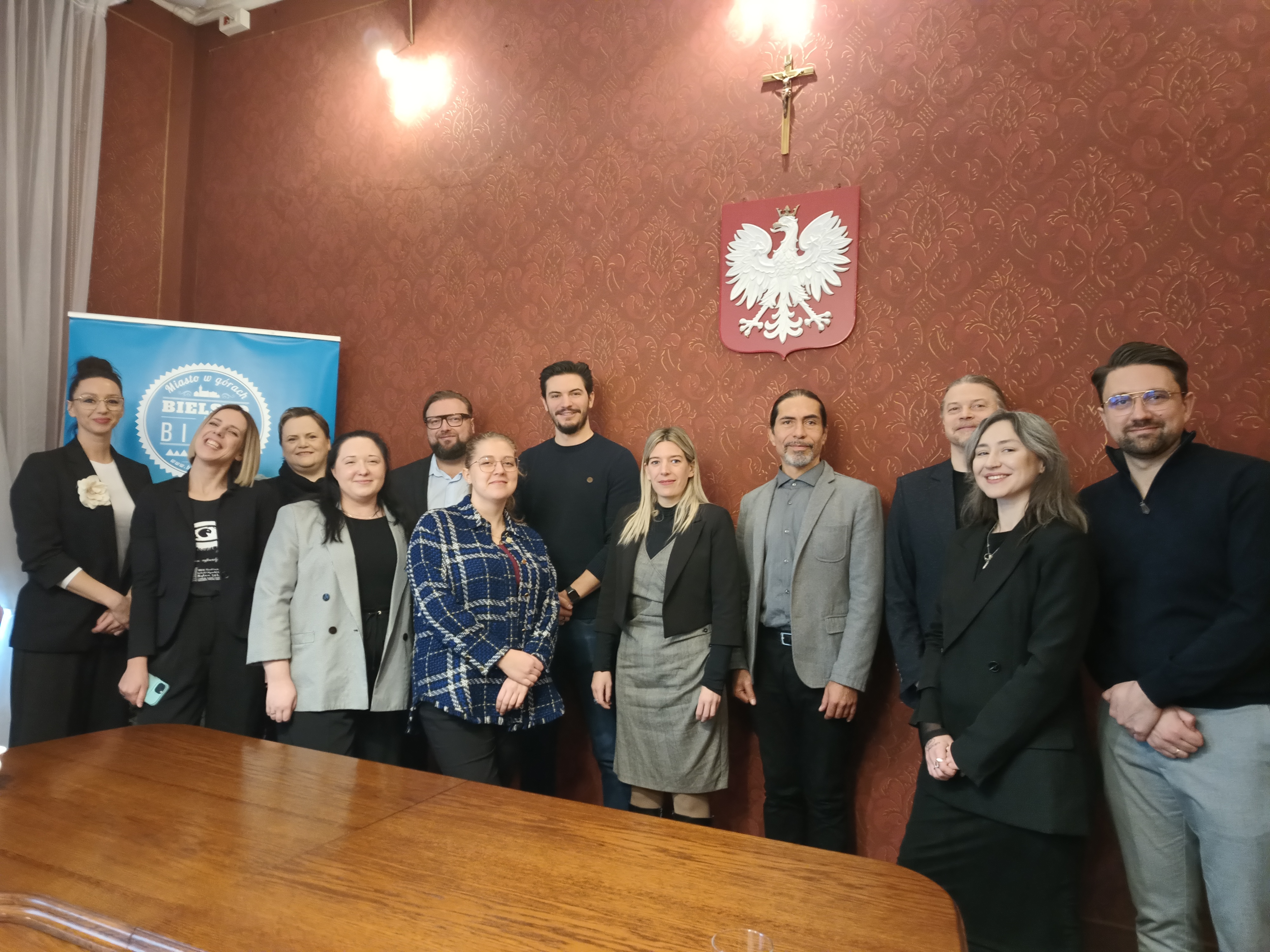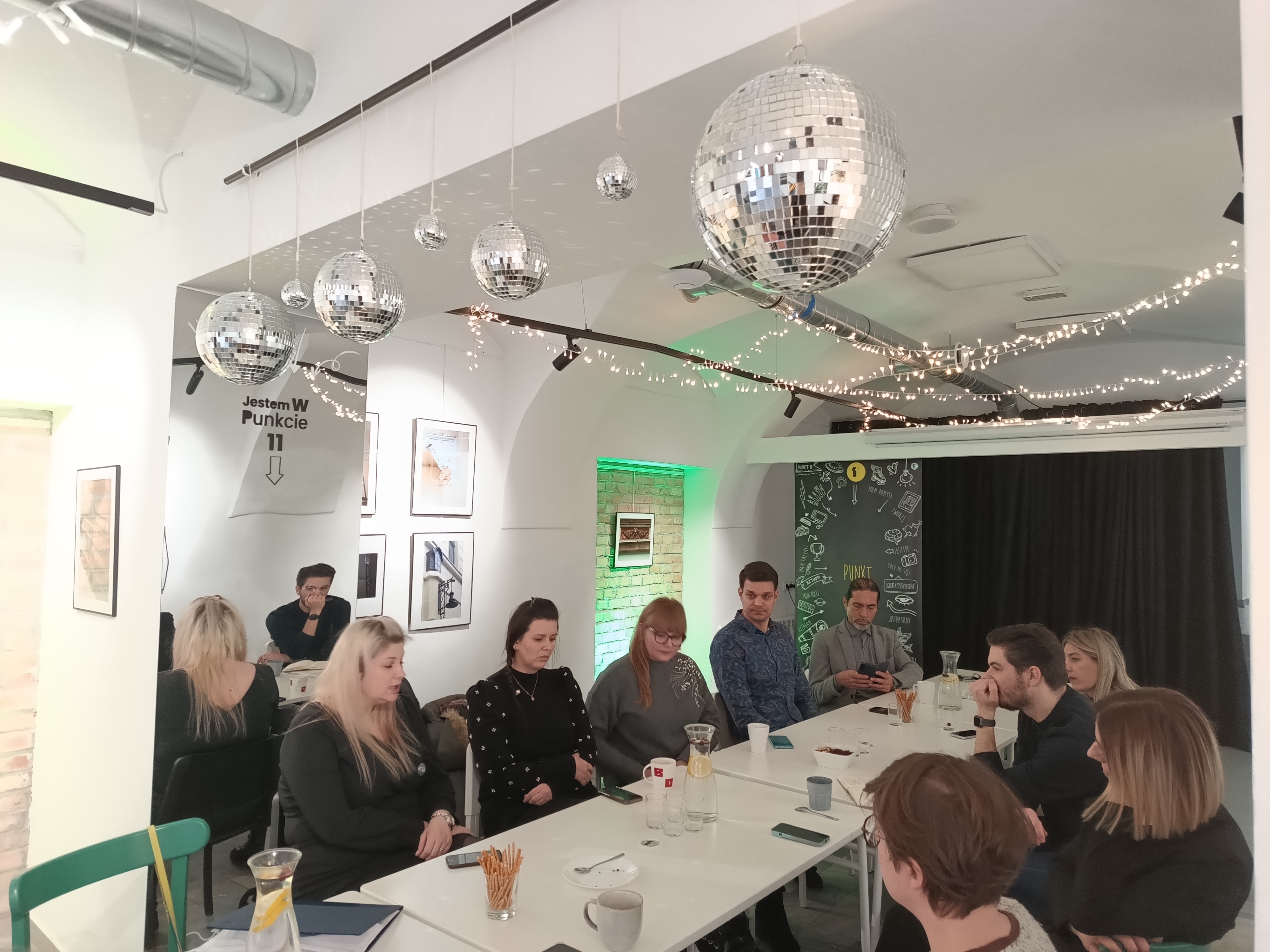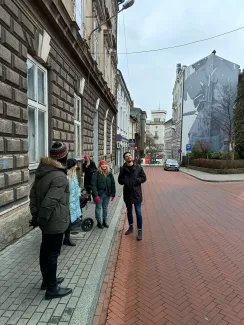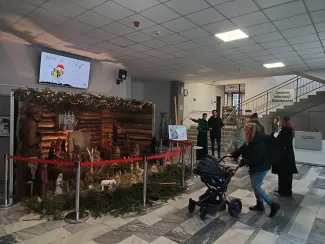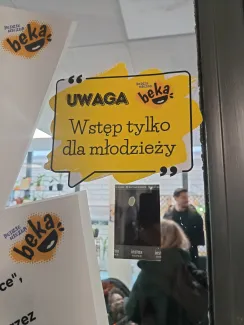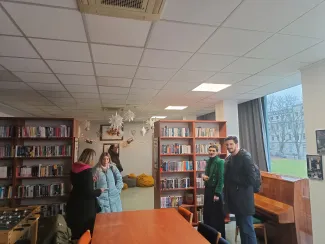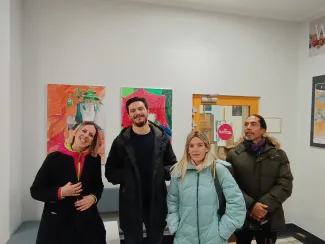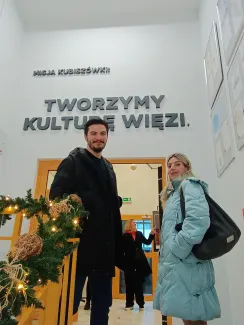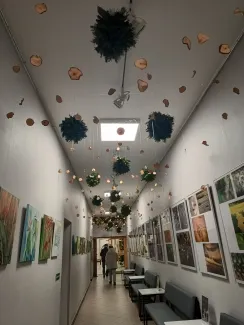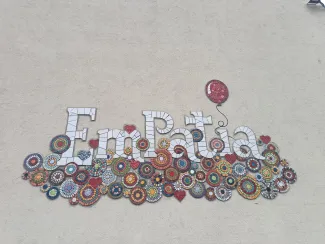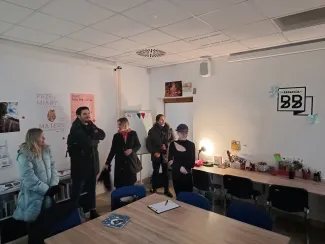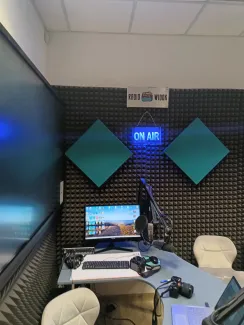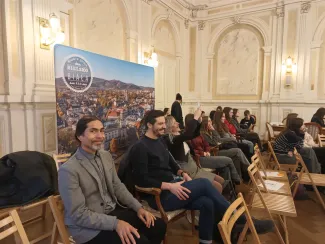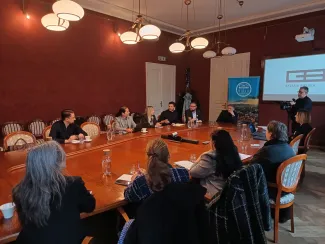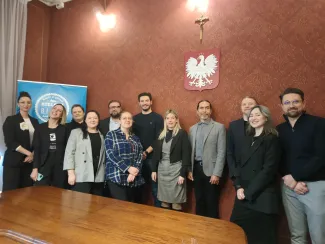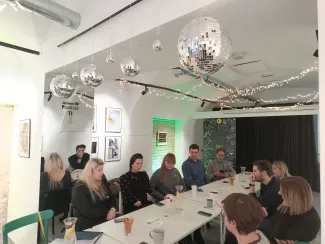Following the Whispers: Bielsko-Biała’s Urban Experiment in Art and Legends
A City That Whispers: Art, Games, and Community
In the winter of 2025, the streets of Bielsko-Biała began to whisper—not just with the rhythm of passing footsteps, but with stories told through tiles, drawings, and mysterious figures inspired by Slavic folklore. As the first-ever Polish Capital of Culture in 2026, the city became a living laboratory for shared discovery, play, and creation within the international URBACT IV project Reinventing Culture in Urban Places (RECUP).
The pilot activities, carried out between November and December 2025, were far from one-off events. They created a laboratory of urban life, where residents—young and old—could co-create the city’s story and spaces. The project addresses contemporary urban challenges: loneliness, digital isolation, and weakened social bonds, demonstrating through practice how culture can become a tool for building community.
Slavic Spirits as a Starting Point for Urban Dialogue
One of the test activities included art workshops with Marcin “Malik” Malicki, aimed at youth. The starting point was the rich world of Slavic spirits—a seemingly niche topic, yet deeply rooted in the local imagination and regional history.
“The workshops began with a list of 12 figures from the folk belief universe, which were placed along a city street-art trail. This made the workshops an integral part of the project,” explains Malik. “Since the trail itself is based on ceramic tiles, we decided that the outcome would be magnets that participants could take home.”
The magnet format quickly sparked further creative work.
“It inspired us to use street-art techniques to show the process of designing a graphic symbol—a logo. Participants learned how to condense a figure, idea, and complex network of meanings into a single, readable symbol that conveys both story and emotion,” Malik adds.
The creative process was as important as the final result.
“The workshops provided a chance to get closer to the forgotten world of local folk beliefs—a world once integral to everyday life, rich in magic far beyond our contemporary digital reality,” Malik emphasizes.
Participants worked in groups, exchanging ideas, experimenting with different styles, and discussing what each symbol could reveal about the city’s history and its residents.
“It was also a lesson in empathy and collaboration. Young people learned to make joint decisions, justify artistic choices, and discover the power of creativity to bring people together,” notes the artist.
Art as a Tool for Building Community
Malik also highlights the social dimension of the workshops:
“Step by step, we change the way people perceive urban space. What was once ‘nobody’s’ becomes ‘ours.’ A sense of influence, familiarity, and responsibility emerges. We stop thinking: ‘someone will do something,’ and start saying: ‘with us,’ ‘ours.’”
This shift from passive user to co-creator of the city is one of RECUP project’s key objectives. Workshops demonstrate that art can connect, foster relationships, and counter loneliness, while strengthening local identity and citizens’ sense of agency.
Urban Game: Following the Whispers
A natural extension of the workshops was the city game “Following the Whisperers – The Trail of Slavic Spirits”, where participants explored Bielsko-Biała through tasks, stories, and interactions with the urban environment. The trail is based on workshop symbols and city tiles, guiding players through local legends and lesser-known corners of the city.
The game is also available online via splot.bb, combining analog and digital experiences and testing new tools for urban engagement.
“It’s not just a game,” Malik explains. “It becomes a tool for social animation, allowing residents to see the city differently, more mindfully, and feel that everyone can influence its spaces.”
The game demonstrates that urban space is alive and full of stories—you just need to step in and listen to the whispers left by those who came before. Initiatives like this transform the city from an anonymous backdrop into a place that residents actively co-create and where they feel at home.
Digital Transformation – a New Dimension of Participation (Digital Transition)
Today, digital transformation of cities (Digital Transition) is gaining enormous significance, particularly in the context of engaging residents, education, and building social bonds. In the „REinventing Culture in Urban Places” project, this dimension was effectively implemented through artistic workshops and the city game “Following the Whisperers – The Trail of Slavic Spirits”, based on the SplotBB platform. By using digital tools, participants were able to actively co-create the city’s narrative, combine offline and online experiences, solve tasks, and engage with geolocation and gamification elements.
This is not just a modern form of play – digital tools became a mechanism for participation, cultural education, and strengthening ties with urban space and local intangible heritage. The modular structure of the game and digital artifacts (logos, interactive maps, tasks) facilitate documentation, knowledge transfer, and the potential to replicate the project in other districts or URBACT partner cities.
Integrating digital tools into cultural activities aligns with the city’s sustainable development strategy, fosters residents’ digital skills, and enhances quality of life in urban spaces. Digital Transition is one of the key values underpinning the URBACT IV program, and combined with local art, education, and participation, it becomes a value-added dimension of the RECUP project, showing that contemporary urban culture can connect people, strengthen community, and create an open, creative, and sensitive city.
The City as a Laboratory of Life and Culture
The international project draws inspiration from Újbuda, Budapest, where similar activities (CUP4Creativity) effectively addressed social and digital isolation.
“The greatest strength lies in local, grassroots initiatives that give residents a sense of agency,” says Aleksandra Tarnawa, the Coordinator of Punkt 11.“They build bonds and responsibility for shared surroundings.”
For Bielsko-Biała, participation in „REinventing Culture in Urban Places” project is an opportunity to strengthen the city’s European ties, adapt good practices, and simultaneously develop locally rooted solutions. Through workshops, city games, and collaboration with artists, residents not only rediscover their city but also learn that culture is a process, not a single event.
Art That Connects
The pilot actions show that culture can entertain, connect, and even heal loneliness. The city becomes a space for narrative, dialogue, and creative community. As Przemysław Smyczek, Head of the Department of Culture and Promotion, notes:
“As the first Polish Capital of Culture, we want to transform our city through culture and cooperation with residents. Projects like RECUP strengthen bonds and show that urban space is a shared good.”
Being the Project Partner in such diverse and international initiative demonstrates that Bielsko-Biała is an open, citizen-friendly city, where everyday spaces are sources of inspiration, creativity, and connection. Lessons drawn from other European cities acquire a local dimension, and culture becomes a tool for building a sensitive, communal, and creative urban environment.
Project ''REinventing Culture in Urban Places'' - Bielsko-Biała on the European Map of Cultural Initiatives
Bielsko-Biała in an international project – an opportunity the city is seizing
Bielsko-Biała has joined the group of partners in the European project REinventing Culture in Urban Places, implemented under the URBACT IV programme. For a city that has been consistently developing its cultural and social activities – and which in 2026 will hold the title of the first Polish Capital of Culture – participation in this project marks an important stage of growth. This title opens new perspectives and allows the city to fully harness its creative potential. Initiatives such as this strengthen the awareness that Bielsko-Biała is part of the European community of cities ready to share their experiences and proven solutions.
Today, Bielsko-Biała consciously chooses development – not only by strengthening its own potential, but also through cooperation and exchange of experience with other cities across Europe. Participation in URBACT IV provides an opportunity to apply tried and tested practices and to introduce solutions that effectively respond to local needs.
Újbuda – a district that became an inspiration
The REinventing Culture in Urban Places project is based on the experience of Újbuda district and its successfully implemented CUP4Creativity project. This model – effectively applied and delivering measurable results – was recognised as a good practice and has brought us together with other European cities that wish to learn from and be inspired by it. In this context, a “good practice” means not only inspiration but also a concrete, proven solution that can be adapted to local realities. This allows innovations to be implemented faster and more effectively – not from scratch, but based on the experiences of international partners.
The main objective of CUP4Creativity was to counter loneliness and digital isolation through culture – not as a ready-made offer, but as a process of co-creation. Thanks to its microgrant programme, more than 120 grassroots initiatives received support, including balcony concerts, neighbourhood festivals, and micro-festivals. Urban spaces were transformed into creative hubs and meeting places. Crucially, the project engaged the local community, mapped its needs, and fostered cooperation with businesses and NGOs.
The conclusions from Budapest are clear: the most effective actions are those rooted in the community. The success of CUP4Creativity project demonstrated that the strongest foundation of culture is the joint activity of residents. This is the model we want to creatively develop in our city.
Bielsko-Biała through the eyes of experts – study visit and recommendations
At the initial stage of the project, Bielsko-Biała hosted European experts: Elisa Filippi – URBACT thematic expert, Máté Ábrahám – project leader from Budapest, and Aldo Vargas-Tetmajer – coordinator of the National URBACT Contact Point in Poland.
During the study visit, the experts familiarised themselves with the city’s potential in the field of culture and the creative sector. The meetings were attended by, among others, Deputy Mayor - Adam Ruśniak, Head of the Department of Culture and Promotion - Przemysław Smyczek, and representatives of cultural institutions: Bielsko Cultural Centre, Bielska Gallery BWA, the Polish Theatre, Banialuka Puppet Theatre, Książnica Beskidzka Library, and Municipal Cultural Centres. Discussions confirmed that the project perfectly fits the city’s strategy – at that time focused on the bid for the title of European Capital of Culture, and now on preparations for holding the title of Polish Capital of Culture 2026.
The second part of the visit focused on cooperation with local communities. The experts met with representatives of municipal departments, NGOs, youth groups, cultural animators, educators, and community leaders. The discussions revolved around how to build an action plan in the spirit of participation – engaging both institutions and residents.
The guests also visited selected cultural activity sites: Kubiszówka Cultural Centre, Książnica Beskidzka with its BEKA youth zone, Punkt 11, Redakcja BB, and the City Hall. They were particularly impressed by the Fairy-tale Bielsko-Biała trail, highlighting the city’s film heritage, as well as Pedanteria – a former Auschwitz laundry with a difficult wartime history, which has the potential to become a space of memory and socio-cultural activities.
In conclusion, the experts emphasised that Bielsko-Biała has a strong institutional base, an engaged community, and significant creative potential in culture and the creative industries.
A European perspective with a local heart – from inspiration to daily life
The visit resulted in the preparation of a set of recommendations for Bielsko-Biała, outlining directions for further development. The experts proposed five strategic pillars:
- Active community engagement – residents should have a real impact on the city’s cultural offer and development.
- Creative use of spaces – including vacant buildings and post-industrial areas.
- Digital and hybrid accessibility – expanding online activities and combining them with live events.
- Cooperation with the private sector – fostering business–culture partnerships as an additional source of support.
- Participatory cultural management – further involving residents and organisations in decision-making processes.
Implementing these actions will allow Bielsko-Biała to draw on European experience while building locally tailored models of cultural co-creation.
Aleksandra Tarnawa, cultural animator and head of Punkt 11, emphasises that the greatest strength lies in local, grassroots initiatives, which give residents a sense of agency. Such activities build bonds, strengthen community, and increase responsibility for the shared environment. The “communicating vessels” model – a network of spaces adapted to the needs of different districts – can, as the Újbuda example shows, effectively revitalise the urban fabric, especially in its historic parts.
Cultural projects such as this are an appropriate and effective response to the challenges faced by contemporary cities – such as loneliness or exclusion. They create safe spaces for meetings, cooperation, and exchange of experiences. International exchange within URBACT not only enables the use of proven practices but also strengthens the skills of local teams and builds the image of Bielsko-Biała as an open, creative city co-created by its residents.
Bielsko-Biała – consistently building its role as a city of culture
For years, Bielsko-Biała has been consistently strengthening its position as a city of culture – dynamic, open and European. Participation in the REinventing Culture in Urban Places project is another important step on this path. As a city that has applied for the title of European Capital of Culture and that in 2026 will become the first Polish Capital of Culture, we now face new perspectives. This is the moment when our cultural potential fully unfolds – enabling us both to share good practices and to benefit from the experiences of other European cities.
Culture and social activity are the foundations of local development. They build bonds, strengthen community, and give residents the sense of belonging to something greater. Participation in this project is not only an opportunity to learn from European experiences – it is also a chance for our city to become a space where culture inspires, integrates, and contributes to greater wellbeing.
Bielsko-Biała in the project: REinventing Culture in Urban Places
Together against digital loneliness
The City of Bielsko-Biała has joined the international project REinventing Culture in Urban Places implemented within the URBACT IV programme.
The project aims to strengthen local communities through the use of culture and creativity. The project, led by the Újbuda district of Budapest, builds on the experience of an earlier project, CUP 4 Creativity, which successfully tackled digital loneliness and weakened social connections.
The project involves other European cities learning together how to implement innovative solutions at a local level. Those are as follows:
- Újbuda, a district of Budapest (Hungary),
- Dubrovnik (Croatia),
- la Mancomunidad de l'Horta Nord (Spain),
- Amersfoort (Netherlands),
- Sandyford (Ireland).
Digital loneliness and the weakening of local social bonds
Digital loneliness, one of the key problems in modern societies, is a phenomenon in which people are replacing real social relationships with digital communication, leading to isolation and the breakdown of local bonds. Social media and digital applications, while facilitating global connections, often work for commercial gain while undermining real human relationships.
As many as 7% of European adults experience loneliness, according to a 2018 European Commission report. This phenomenon particularly affects urban dwellers, including in countries such as Hungary, where the problem is particularly prevalent. The COVID-19 pandemic has further highlighted the scale of digital loneliness, which has contributed to the weakening of social ties and local communities.
At the same time, culture and creativity have great potential to build mental health and rebuild social connections. Creative activities not only foster integration and community, but also allow for better economic and social development. Unfortunately, lack of access to the right tools, spaces and inspiration means that the potential for creativity in many people remains untapped.
Aims and activities of the project
The REinventing Culture in Urban Places project, which aims to rebuild local bonds through culture and creativity, has responded to these challenges. Its key elements are:
- Using technology and culture to strengthen local communities - project was inspired by innovations implemented in Budapest, such as the Adaptér knowledge centre, which combines modern technology with culture.
- Involving residents in grassroots activities - the project supports local initiatives and events to activate residents and create community.
- Building a creative ecosystem - project partners exchange experiences and good practices to develop an environment conducive to culture and creativity.
Within the project, activities focus on engaging residents in various forms of creativity to forge new relationships, strengthen local communities and combat isolation. One of the aims is also to support the creative and cultural industries sector, which can drive the development of local economies.
What stage of implementation are we at?
The international meeting of project partners held in Budapest is behind us. It was an opportunity to exchange experiences and plan joint activities and to get to know each other's partners. Currently, Bielsko-Biała is in the process of creating a Local URBACT Group, which will bring together representatives of residents, NGOs, entrepreneurs, cultural institutions and city authorities. This group will be a key element of the project activities, working on the creation of a Local Action Plan, i.e. a strategy integrating activities related to culture, creativity and community building.
What lies ahead?
In December, Bielsko-Biała will be visited by project experts who will meet with the city authorities and local stakeholders. Workshops and meetings will help identify local needs and develop practical solutions to foster creative communities.
Why ReCUP?
The project is a response to the challenges of modern cities, such as digital loneliness, social isolation and lack of integration of local communities. The project combines the potential of culture and creativity with modern technologies, offering residents alternatives to the passive consumption of digital content. Working together, the project aims to create a more integrated, open and creative environment in Bielsko-Biała, which will benefit both residents and the city as a whole.
By participating in the URBACT programme and working with European partners, Bielsko-Biała has the opportunity to become a leader in creating sustainable, creative and resilient urban communities.
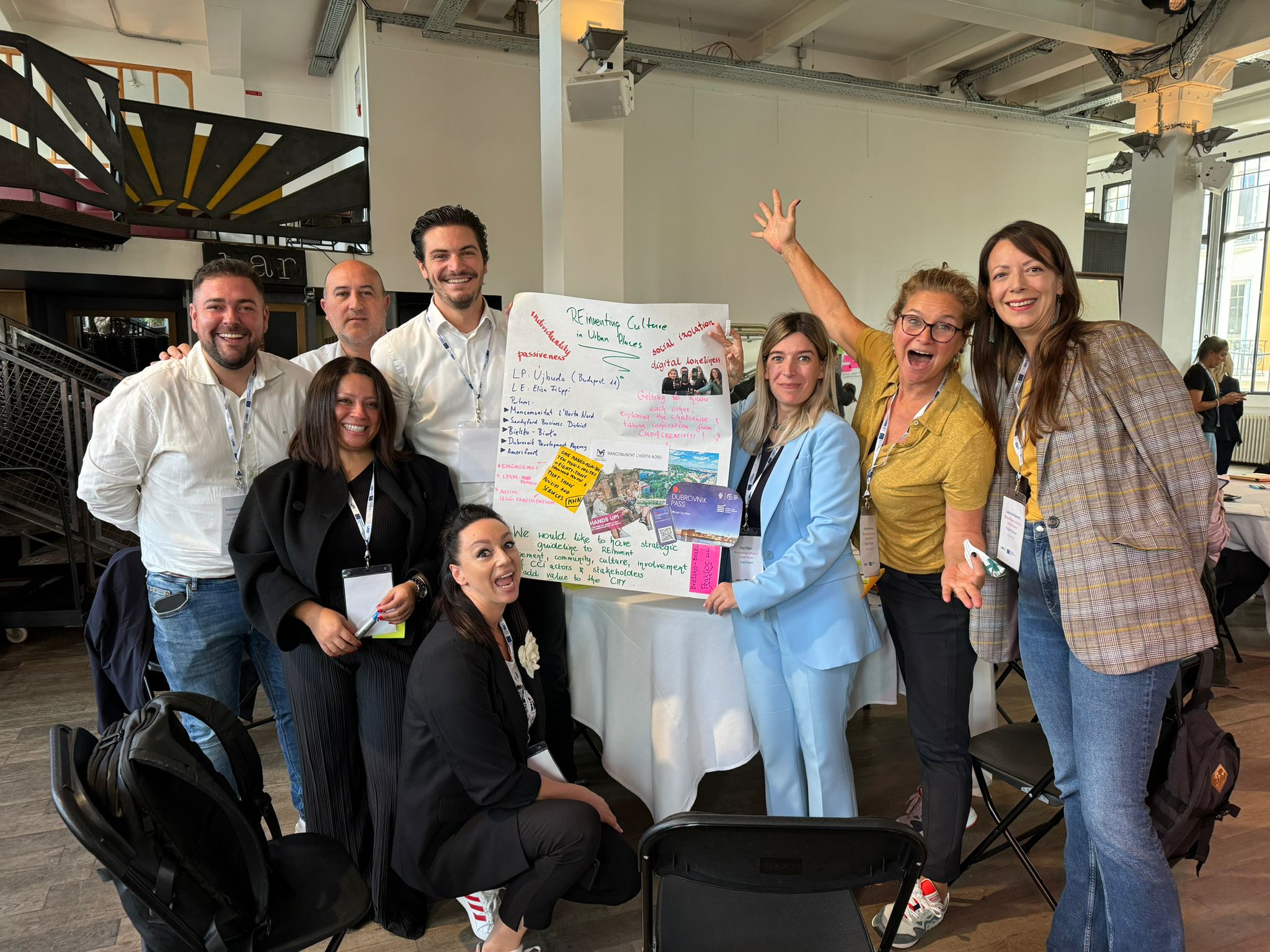

Project co-financed by the European Union from the funds of the
European Regional Development Fund (ERDF) for the period 2021-2027
as part of the URBACT IV Programme.
Total Project Value: EUR 550 000
EU Funding: EUR 382 527
Grant Value: EUR 70 970,03
